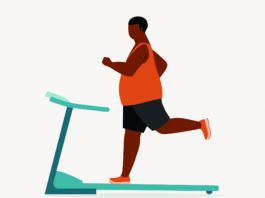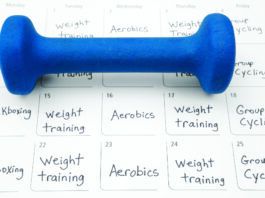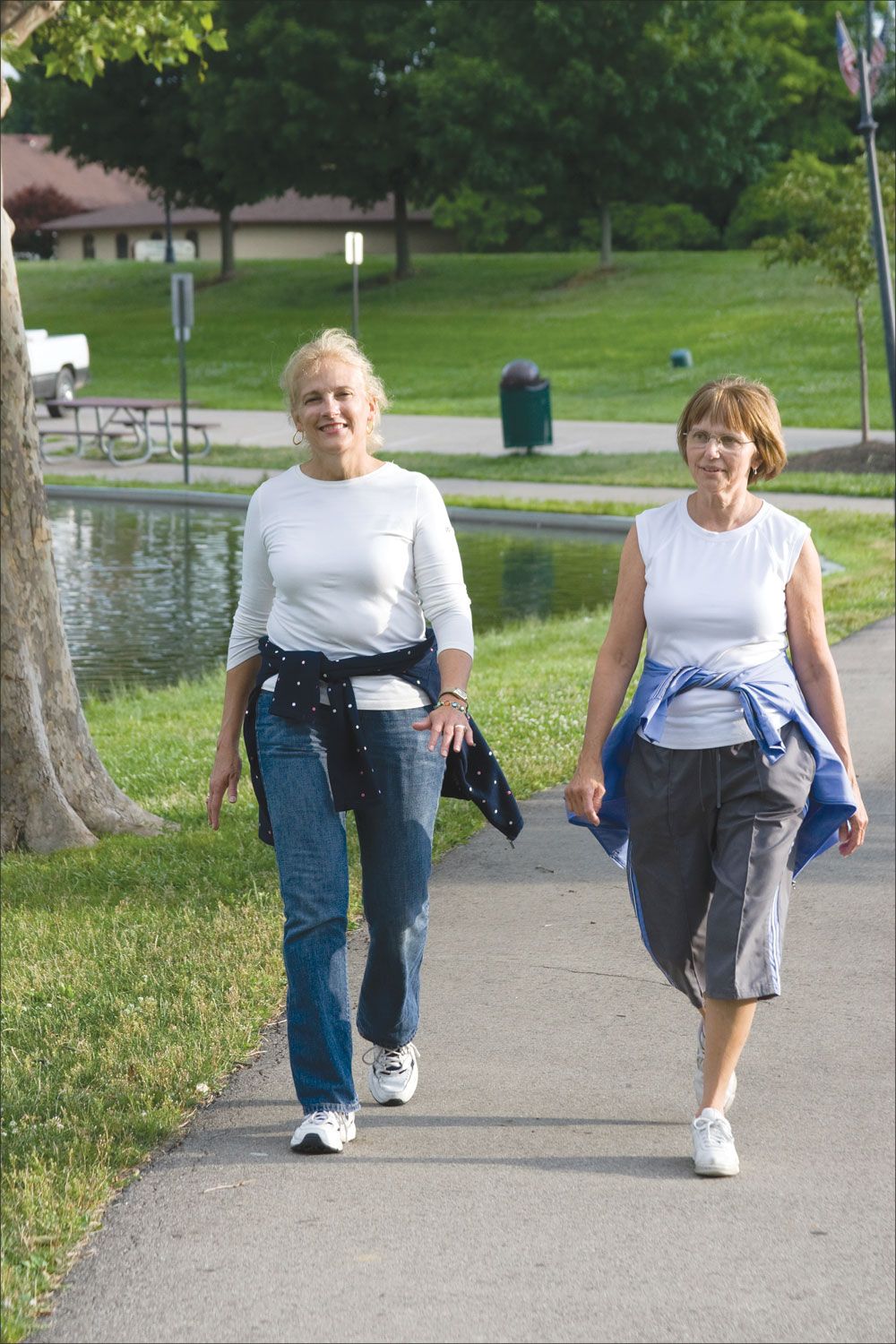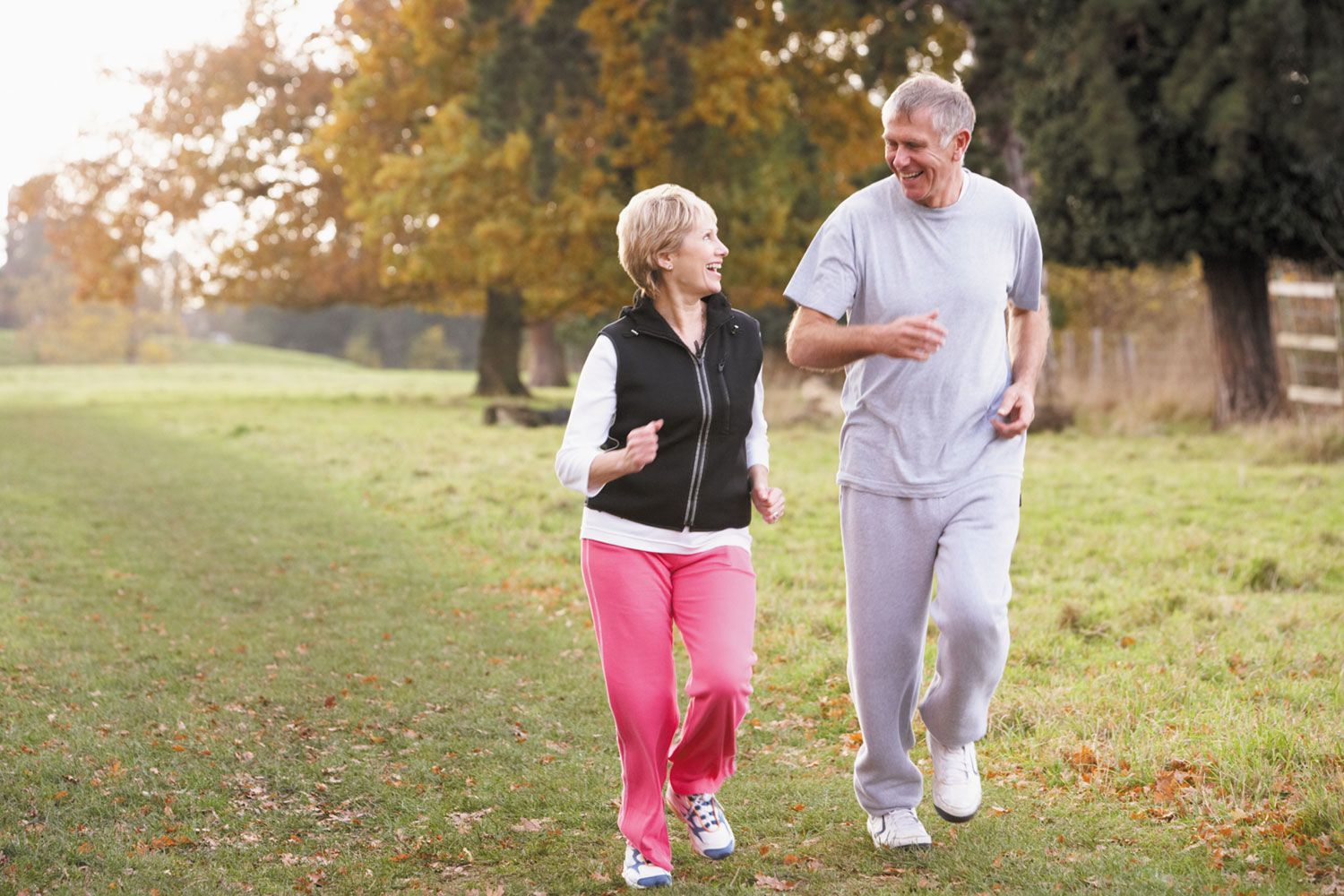Activity Levels Drop After Retirement
Plans to become more active once people have greater free time after retirement may be just that, according to a new British study. Among 3,334 men and women followed over about 10 years, those who retired during the study period showed significant declines in physical activity compared to their working years. All were employed at the studys start, but 785 subsequently retired. Researchers measured physical activity in metabolic equivalents (METS); mowing the lawn, for example,…
Protein Plus Exercise Equals Less Muscle Loss with Aging
Most Americans get plenty of protein-in fact, their problem isnt too little protein but too much of the calories and saturated fat that accompany such popular protein sources as cheeseburgers or fried chicken. But people over age 50 might need to pay attention to getting adequate protein, not just at dinner time but throughout the day. Tufts researchers are finding that a steady intake of protein from healthy sources, combined with aerobic activity and weight-training exercises, can help counter the loss of muscle mass often associated with aging.
Take a Hike to Lower Your Risk of Stroke
Two new studies suggest that one simple way to reduce your risk of suffering a stroke is to lace up your walking shoes and get moving. In a British study of nearly 3,500 initially healthy men ages 60-80, those who spent time walking were less likely to suffer a stroke, with risk declining as walking time increased. In another new finding, reported at a conference, women who walked or engaged in other moderate-intensity exercise were 20% less likely to suffer a stroke.
Q. I heard that if you exercise on an empty stomach, you will defeat...
A. Miriam E. Nelson, PhD, professor at Tufts Friedman School and author of the Strong Women series, replies: You might be hungry, but exercising on an empty stomach wont change what overall fuels your body is using.…
Food Companies Exceed Calorie-Cutting Goal
Since 2007, 16 of the nations leading food and beverage companies have cut 6.4 trillion calories out of the American diet-equivalent to 78 daily calories per person. Thats the conclusion of a report by the Robert Wood Johnson Foundation, which worked with the companies to help combat childhood obesity.
Rx for Combating Chronic Conditions: Exercise
A potentially life-saving prescription for fighting heart disease, diabetes and stroke could be as close as those walking shoes gathering dust in your closet. According to an unusual new study, the benefits of exercise in reducing mortality from those leading causes of death match or even exceed the effects of prescription drugs for the same conditions. Patients with heart disease who exercised, for instance, had the same odds of surviving the condition as those given medications such as statins or antiplatelet drugs.
Hearing Loss Linked to Overweight
Heres a new reason for watching your waistline and keeping active thats worth listening to: Extra weight and greater waist circumference are linked to a higher risk of hearing loss with aging, while moderate physical activity is associated with reduced risk.
Active Leisure Improves Heart Health and Longevity
How you spend your free time may affect how much life time you have to spend. While nothing beats regular exercise, a new Swedish study reports that older adults who are more active in their leisure time were less prone to cardiovascular problems and lived longer than their sedentary peers. The benefits were seen regardless of whether the seniors also engaged in vigorous exercise.
10 Keys to Cardiovascular Health
When the American College of Cardiology and American Heart Association released new guidelines for preventing cardiovascular disease in November, the headlines all focused on their controversial recommendations for statin use. Almost lost in the coverage was another set of ACC/AHA recommendations, which looked at diet and physical activity rather than drugs for reducing cardiovascular risk. Whether your physician has prescribed statin medications or not, these Lifestyle Management Guidelines can help protect your heart.
Healthy Diet and Lifestyle Help Prevent Disability with Aging
Unhealthy behaviors such as inactivity, poor diet and smoking have long been associated with a wide range of chronic diseases and risk of death. But a new study reveals that such lifestyle factors can also affect older adults' risk of disability and loss of independence.































